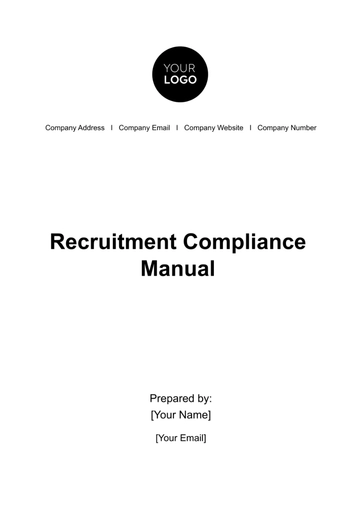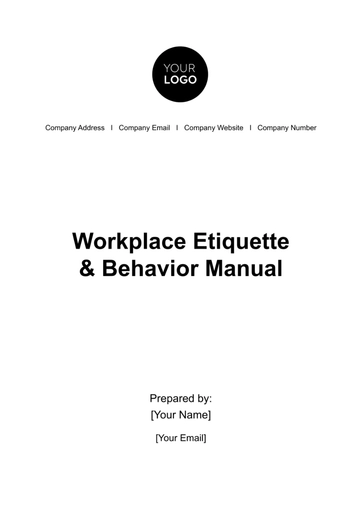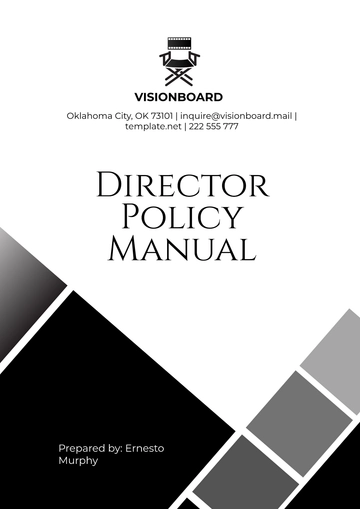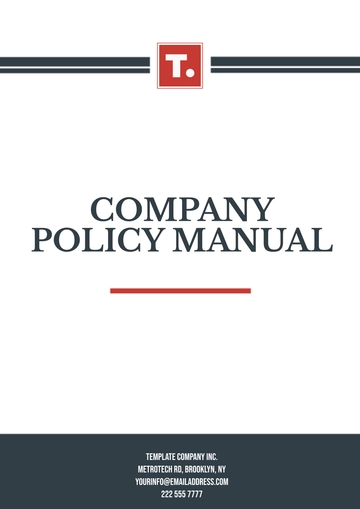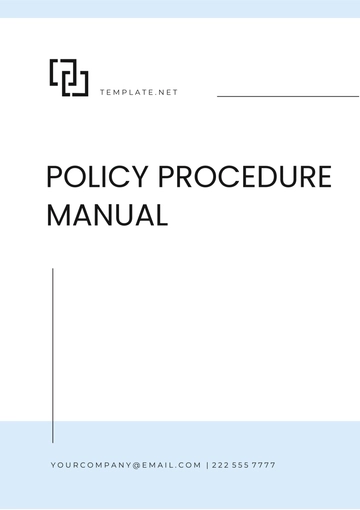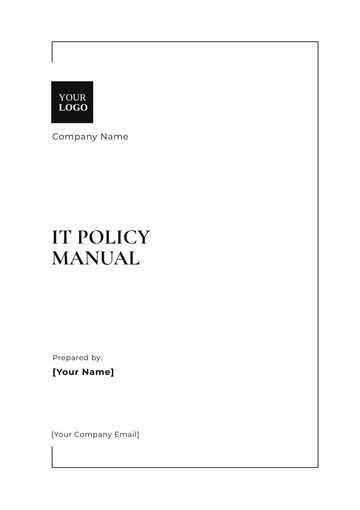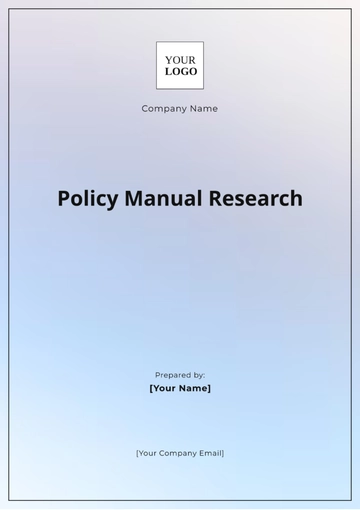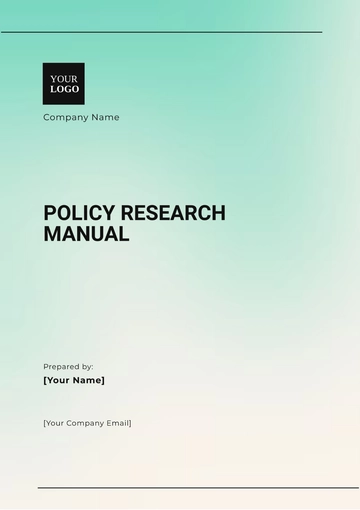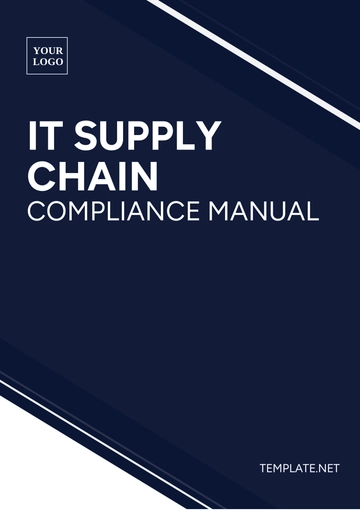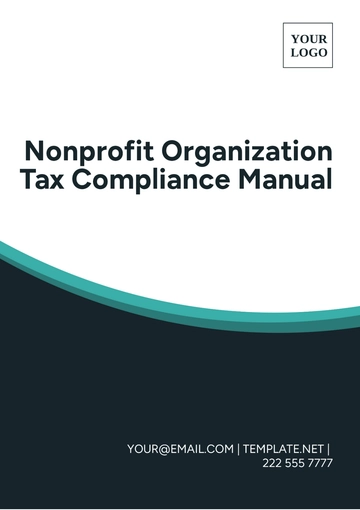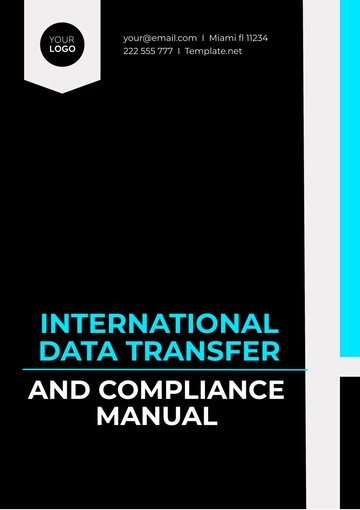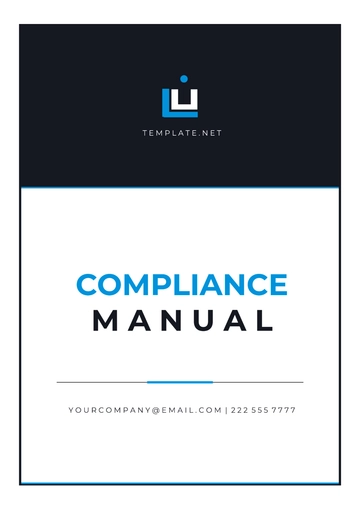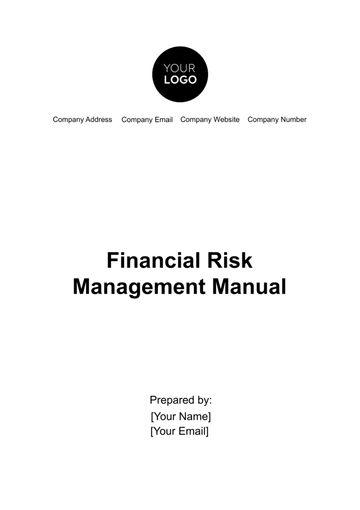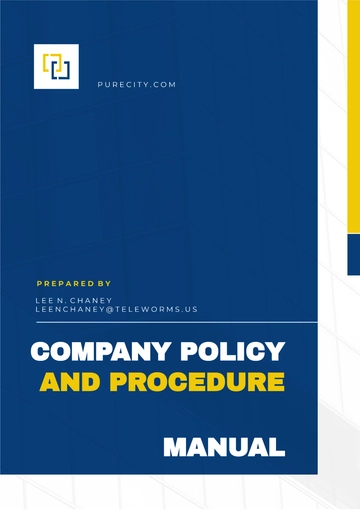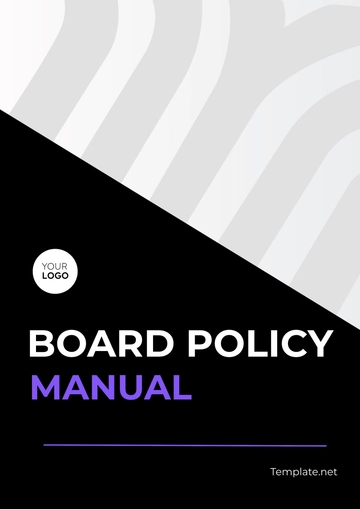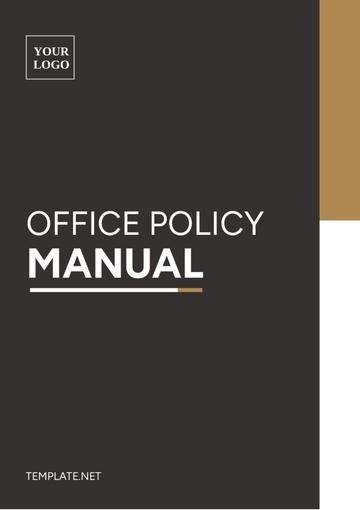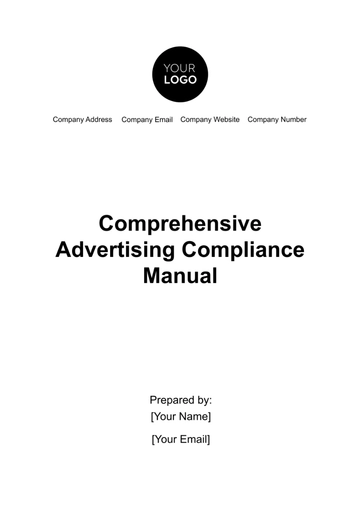Free Advertising Media Planning Ethics Manual
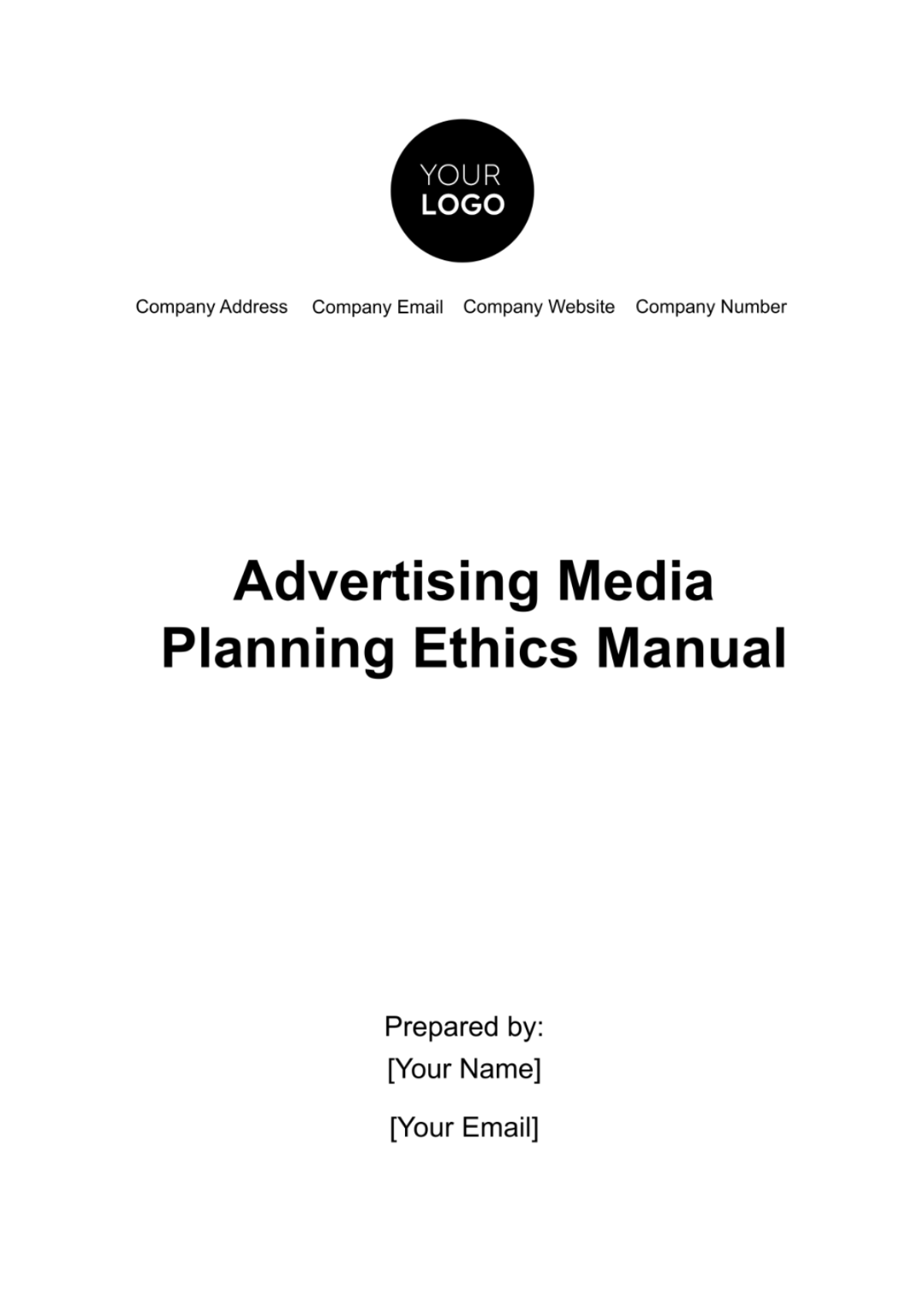
In an era where advertising shapes perceptions and influences decisions, [Your Company Name] stands committed to the highest ethical standards in media planning and execution. This manual is a testament to our dedication, providing a comprehensive guide for our team members to craft advertising strategies that are not only effective but also principled and responsible. Our goal is to ensure that every advertising effort we undertake respects and uplifts the consumer, fostering an environment of trust and respect. For inquiries, clarifications, or discussions on ethical advertising practices, we welcome you to reach out to us at [Your Company Email] or [Your Company Number].
I. Introduction
In the dynamic interplay of modern commerce, advertising stands as the crucial link between brands and their diverse audiences. It's a powerful tool, capable of inspiring, informing, and influencing. However, with great power comes great responsibility. At [Your Company Name], we recognize the importance of integrating ethical considerations into our media planning processes. By doing so, we aim to cultivate a responsible advertising environment that not only champions consumer rights but also promotes a fair and competitive market landscape. It's about creating value that resonates on a deeper, more respectful level with our audience.
II. Why Advertising Ethics Matter?
Ethical advertising is the cornerstone upon which we build trust and credibility with our stakeholders. It's about more than just compliance with legal standards; it's about fostering a genuine connection with our audience through transparency, honesty, and integrity. In an age where consumers are more informed and discerning, the importance of maintaining a positive and ethical brand image cannot be overstated. Ethical lapses in advertising can quickly erode consumer trust, leading to a tarnished brand reputation, legal challenges, and ultimately, customer alienation. By adhering to ethical advertising practices, we safeguard our brand’s integrity and contribute to a healthier, more constructive advertising ecosystem.
III. Principles of Ethical Advertising Media Planning
As we navigate the complex landscape of advertising, we anchor our strategies in key ethical principles that guide our actions and decisions. The principles outlined below serve as the foundation for our commitment to ethical advertising, ensuring that our campaigns not only achieve their marketing objectives but do so in a manner that is respectful and responsible.
Before diving into the principles, it’s important to understand that these aren’t just guidelines but commitments we make to our audience and ourselves. They ensure that every piece of advertising content we produce and disseminate upholds the highest standards of integrity and respect.
Principles | Description |
|---|---|
Honesty | All advertisements should be honest and truthful, avoiding deceptive practices and false claims. |
Transparency | Disclosure guidelines must be followed; advertisers should explicitly state their commercial purpose. |
Respect | Advertisements should respect consumers' rights, privacy, and values; avoiding demeaning or offensive content. |
Responsibility | Advertisers must be accountable for the suitability, contents, and effects of their ads. |
Fairness | Advertisement should encourage fair competition without discrediting or unjustifiably comparing with other brands. |
These principles are not just guidelines but the bedrock of our approach to advertising. They inform our strategies, shape our content, and guide our interactions with the world. By adhering to these principles, we aim to not just sell products or services, but to contribute positively to the societal discourse and foster a culture of respect and integrity in advertising.
Ethical advertising is at the heart of everything we do at [Your Company Name]. It’s a commitment that extends beyond the pages of this manual, influencing every campaign we launch and every message we share. As we move forward, we remain dedicated to these principles, ensuring that our advertising not only achieves its commercial objectives but does so in a way that is respectful, responsible, and aligned with our core values. We invite all our team members, partners, and stakeholders to join us in this commitment, working together to set a new standard for ethical advertising in our industry.
IV. Ethical Guidelines for Purposeful Planning
In our pursuit of ethical advertising, it is crucial that we adhere to guidelines that respect and protect our audience while delivering meaningful content. These guidelines not only reflect our commitment to ethical standards but also our dedication to fostering a positive impact through our advertising efforts. Each guideline is designed with the consumer's welfare in mind, ensuring that our advertising practices contribute positively to the broader societal landscape.
Avoid Exploiting Emotions
Advertisements should be crafted with care to ensure they do not manipulate or exploit the emotions of consumers. This involves a conscientious approach where:
Emotional triggers are used responsibly and not to induce anxiety, fear, or undue stress.
Ad content seeks to inform and engage rather than coerce by tapping into negative emotions.
The emotional well-being of the audience is considered paramount in the creative process.
Respect for a Diverse Audience
Our advertising materials are created with a deep respect for the diversity of our audience. This respect is manifested through:
Inclusive messaging that reflects the cultural, racial, and gender diversity of our global audience.
Avoidance of stereotypes, clichés, and any form of discriminatory content.
Representation that is fair, balanced, and reflective of the diversity in society.
Child Protection
Special considerations are essential for advertisements directed at or featuring children, including:
Ensuring content is appropriate and offers positive messages that contribute to healthy development.
Avoiding the promotion of unhealthy habits, unrealistic body images, or materialistic values.
Protecting the privacy and dignity of children by obtaining proper consent and adhering to legal standards for child protection.
Maintain Privacy
The privacy rights of consumers and clients are of utmost importance and are safeguarded by:
Ensuring data collection and usage are transparent and in compliance with privacy laws and standards.
Respecting the wishes of consumers regarding data privacy, including preferences for contact and advertising.
Protecting sensitive information with robust security measures to prevent unauthorized access or breaches.
Optimized and Non-Intrusive Delivery
Advertisement placements are strategized to ensure they are thoughtful and enhance, rather than detract from, the consumer experience:
Advertisements are placed in contexts that are relevant and appropriate to the content being consumed.
Efforts are made to minimize disruption to the consumer experience, avoiding overly aggressive or repetitive ad placements.
Feedback mechanisms are in place to allow consumers to express preferences and control over the advertising they are exposed to.
V. Ethical Review and Monitoring
At [Your Company Name], our commitment to ethical advertising is an ongoing process that necessitates diligent oversight and continuous improvement. To uphold our high standards, we've instituted a comprehensive system for reviewing and monitoring our advertising practices.
Regular Policy Review
Our policies are periodically reviewed to ensure they remain relevant and effective in addressing current ethical considerations in advertising.
This review process involves stakeholders from various departments to provide a well-rounded perspective on potential updates or enhancements.
Evaluation of Advertising Materials
All advertising materials undergo a thorough evaluation process to ensure they align with our ethical guidelines.
This includes pre-launch reviews to catch potential issues early and post-launch monitoring to assess the impact of our advertisements on the audience.
Open Discussions and Team Engagement
Encouraging open discussions within our teams about ethical advertising practices helps foster a culture of responsibility and integrity.
These discussions provide opportunities for team members to share insights, raise concerns, and contribute to the evolution of our ethical standards.
Continuous Improvement and Training
We are committed to the continuous improvement of our ethical advertising practices through regular training and education for our team members.
This includes workshops, seminars, and other learning opportunities focused on current ethical issues in advertising and best practices for addressing them.
Feedback Mechanisms
Feedback from consumers, clients, and internal stakeholders is invaluable in assessing the effectiveness of our ethical guidelines and identifying areas for improvement.
We maintain open channels for feedback and take all comments under consideration as we refine our advertising practices.
VI. Conclusion
Ethical advertising is not a static goal but a dynamic process that evolves with societal standards, consumer expectations, and technological advancements. At [Your Company Name], we are deeply committed to this journey, continuously striving to enhance the positive impact of our advertising efforts. By adhering to these ethical guidelines and maintaining a rigorous system of review and monitoring, we aim to not only meet but exceed the ethical expectations of our stakeholders and contribute to a more respectful and responsible advertising landscape.
- 100% Customizable, free editor
- Access 1 Million+ Templates, photo’s & graphics
- Download or share as a template
- Click and replace photos, graphics, text, backgrounds
- Resize, crop, AI write & more
- Access advanced editor
Have yourself a helpful template that serves as a comprehensive guide to ethical advertising practices in media planning! The Advertising Media Planning Ethics Manual Template educates users on maintaining integrity and professionalism, highly crucial for building trust and credibility in the industry. Download our easy-to-use template today with editable and customizable features using our AI editor tool at Template.net!

